Brexit: 'It's utter confusion' over trade talks delay
- Published
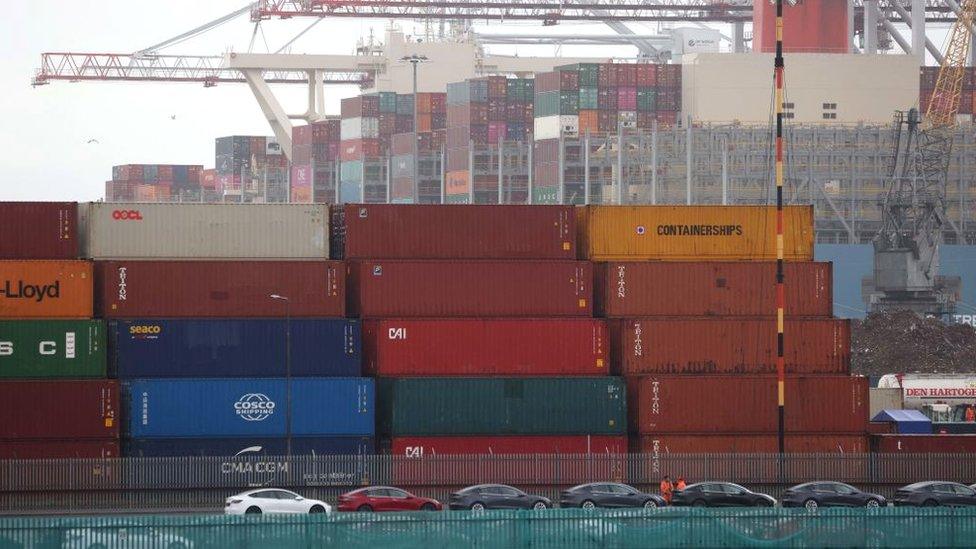
The coronavirus pandemic, the Christmas rush moving online, and the potential of a no-deal Brexit: Businesses big and small have had a great deal to contend with in 2020.
But on Sunday, the UK and European Union (EU) agreed to carry on post-Brexit trade talks beyond what they said would be the deadline.
The UK and EU have been carrying out negotiations since March and are trying to secure a deal before the so-called transition period ends on 31 December.
Talks have been deadlocked on a handful of key issues, including fishing quotas. Should they fail, tariffs - taxes on goods being bought and sold between the two - could be introduced and, prices of certain products may go up as a result.
With the new deadline quickly approaching, what do firms think of yet another delay?

'It's utter confusion'
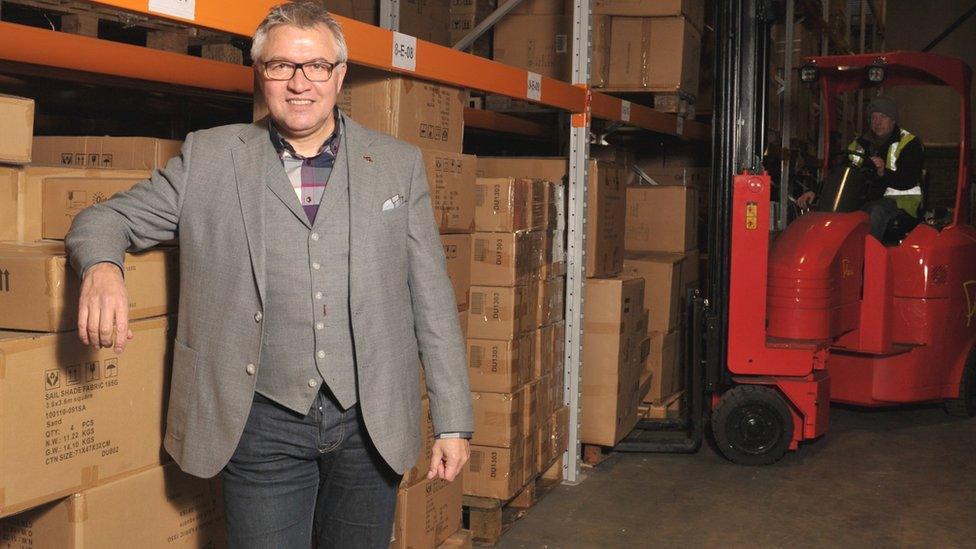
Stephen Britt, is the managing director of Anchor Storage, in Suffolk.
His family-founded firm helps customers with storage, warehousing and transport. Mr Britt voted in favour of the UK leaving the EU in the Brexit referendum, and he feels frustrated with how trade talks have fared since.
"We've long passed the time where we should have done a deal," he says.
On the latest extension of the trade talks deadline, he adds: "It would always have been better to have a mutually beneficial deal for everybody... But if we were going to get something agreeable, that would have happened by now."
Since mid-November, he says he has received enquiries from those looking to bring in additional goods early, in case of further disruption at ports in the event of a no-deal Brexit.
"Nobody knows where they are, it's utter confusion." He says that in any case though, many of his customers will have to adapt to new and more complex ways of moving goods between the UK and the EU.
"But, I've got to be optimistic and positive and say once we learn to deal with the new reality, it will be improved.
"I also hope technology will start kicking in so these cross-channel movements will become more streamlined."

'Not a surprise'

Ed Salt, managing director of Delamere Dairy, in Cheshire, says that another extension to the trade talks deadline came as little surprise.
"I've said for four years that if two sides desperately want a deal, a bit of pragmatism will come into play and we will eventually get one.
"It's more frustrating than anything", he says, having never wanted the UK to leave the EU.
Mr Salt also believes there will be additional costs for his firm, no matter what the outcome. "With Christmas around the corner and Covid-19, as well as Brexit, it is literally the perfect storm."
He expresses frustration, too, with having to make changes to how his business operates, with little information.
Having set up a new office and changed packaging on certain products to continue to be able to supply Northern Ireland post-Brexit, the rules changed once again, offering a three month grace period for food suppliers from Britain.
"Businesses are resilient, and presented with a challenge they tend to overcome it," he says. "But they do need information in order to do that."

'We're already anxious'
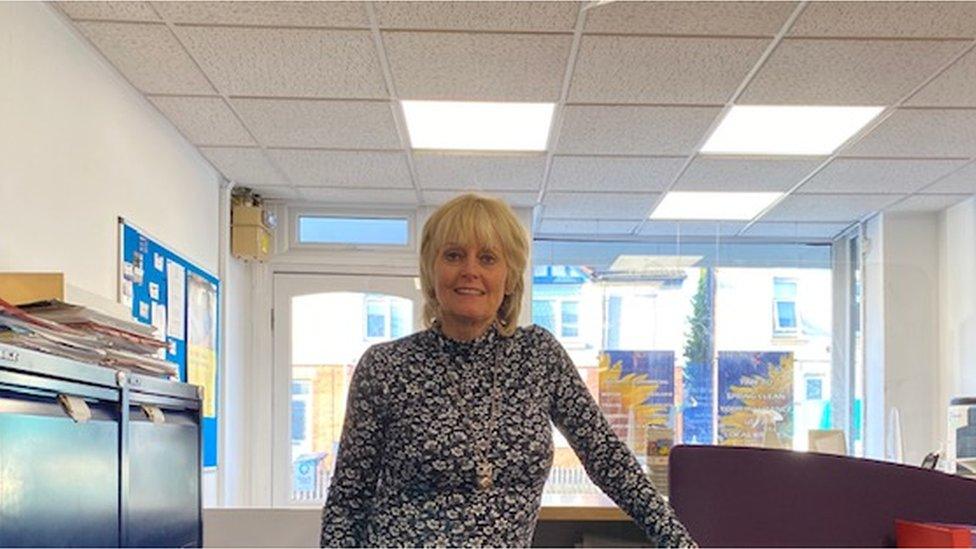
Julie Price is the founder and managing director of Julie Price & Co insurance, in Hinckley, which employs five members of staff.
"Covid-19 has really caused havoc with businesses, and Brexit almost gets relegated as an issue," she says.
But she adds that she's keen to see UK and EU leaders "bash [a deal] out as soon as they can, because we're already anxious as a nation."
Ms Price says that she's already discussed no-deal Brexit contingency plans with several clients, who have put them in motion.
"At the smaller end of the scale, businesses are more flexible and can make changes even in a day. Your big corporations can't act that quickly."
She says that she's concerned that firms would not only be hit financially in the event of no-deal, but also in terms of confidence: "I'm very pro-business and I want them to do well. Confidence is key in that.
"I'm sure we'll come through it, but it would be nice to have a bit more certainty", she adds.

'Limbo makes doing anything very difficult'
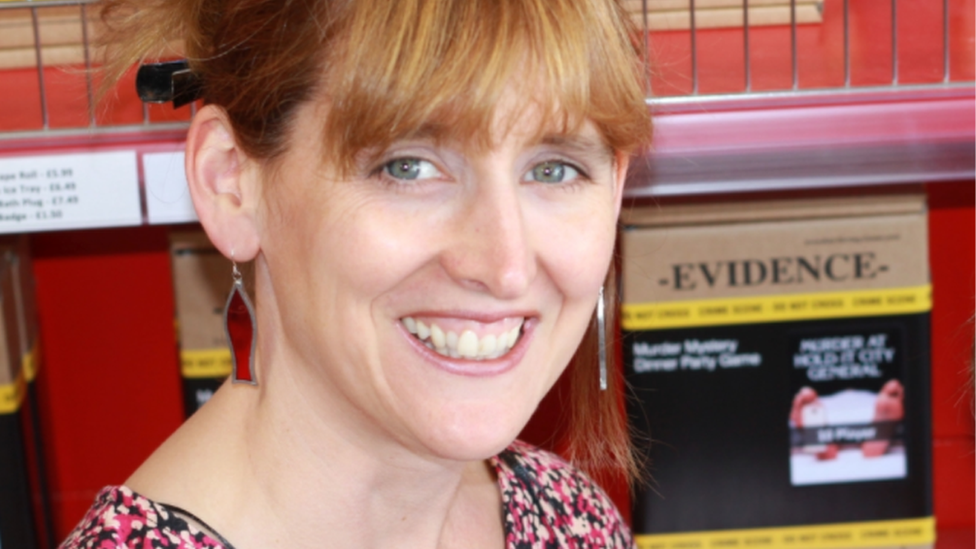
In Grimsby, Jo Smedley, the founder of Red Herring Games, creates and sells games such as murder mysteries to private and corporate clients.
She told the BBC that while "being in limbo makes doing anything very difficult", her business would largely be sheltered from the impact of a no-deal Brexit.
With clients mainly based outside of Europe, "in terms of sales, I don't think there will be much of an effect".
"But of course, we don't know what impact Brexit might have until we're a bit clearer on the new rules," she says.
She adds that she's not surprised that talks have ground to a halt on several occasions.
"It's a very difficult situation, given that we're leaving, rather than negotiating to get into the EU. We're not holding any of the cards, really."
For Jo, she hopes for additional certainty in 2021 for businesses like hers: "The more uncertainty we have, the harder it is for you trade - particularly if you have big business decisions to be making. We just need to get on with it."
Related topics
- Published13 December 2020
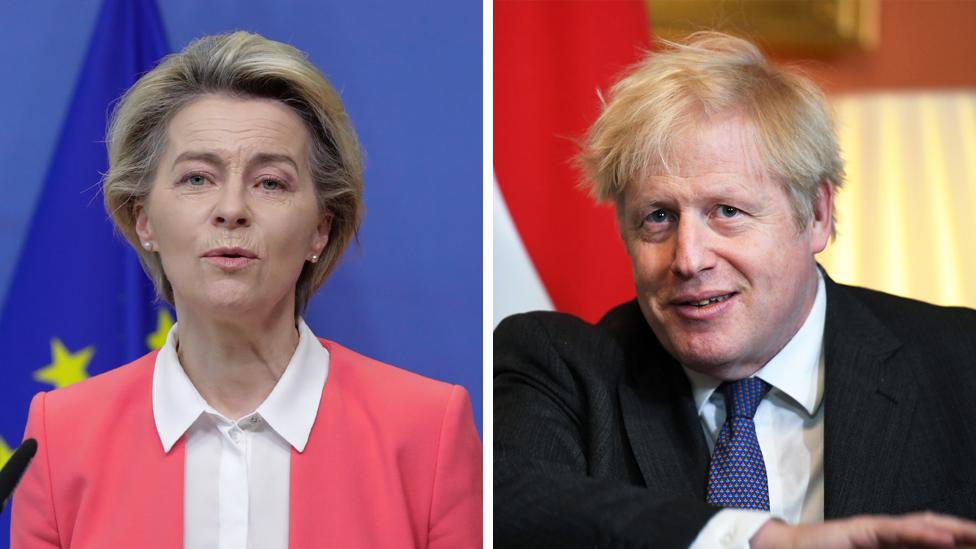
- Published13 December 2020
- Published12 December 2020